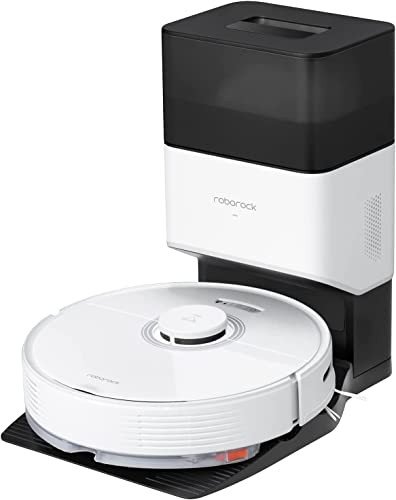The Rise of Robotic Vacuum Cleaners: A Comprehensive Overview
Robotic vacuum cleaners, once a luxury item mainly used by tech lovers, have ended up being a staple in many families around the globe. Using best automatic vacuum cleaner and efficiency in home cleaning, these automated gadgets present a compelling service for hectic people and families alike. This short article dives into the world of robotic vacuum cleaners, exploring their features, benefits, limitations, and the innovation that drives them.
Comprehending Robotic Vacuum Cleaners
Robotic vacuum cleaners, frequently described merely as "robot vacuums," are small, disc-shaped machines created to immediately clean floors. They are geared up with different sensing units, brushes, and effective suction systems to ensure they can navigate around furnishings and other barriers while collecting dirt, dust, and debris.
Secret Features of Robotic Vacuum Cleaners
- Autonomous Operation: These vacuums can run independently, following a predetermined cleaning schedule or reacting to commands by means of smartphone apps or voice assistants.
- Smart Navigation: Advanced models employ algorithms and mapping technology to browse around a home, adjusting their course based on space design.
- Several Cleaning Modes: Many robotic vacuum cleaners can clean up in various modes, such as spot cleaning for concentrated areas or edge cleaning for wall limits.
- Self-Emptying Capabilities: Some high-end models have a docking station that permits them to clear their dustbin automatically.
- App Integration: With Wi-Fi connection, users can manage their robot vacuum through a mobile app, allowing them to monitor cleaning development or set schedules from another location.
Advantages of Robotic Vacuum Cleaners
The increase in popularity of robotic vacuum can be attributed to several benefits:
- Time-Saving: Automated cleaning allows users to maximize their time for other activities.
- Convenience: Users can program their vacuums to clean up on a set schedule, guaranteeing a consistently tidy home without manual effort.
- Versatility: Robot vacuums can clean up numerous floor types, consisting of hardwood, tile, and carpet.
- Compact Design: Their small, low-profile design permits them to access narrow spaces under furniture that traditional vacuums would miss.
Limitations of Robotic Vacuum Cleaners
Regardless of their many benefits, robotic vacuum cleaners also have some limitations:
- Price Range: High-quality designs can be rather expensive, which might be a barrier for some customers.
- Battery Life: While many designs can clean up large areas, battery life may limit prolonged cleaning sessions, requiring a go back to the battery charger midway through.
- Restricted External Features: Unlike standard vacuums, many robotic designs may fight with deep cleaning, particularly on high-pile carpets.
- Challenge Navigation: While they have advanced sensors, robotic vacuums can often get stuck on cords, rugs, and other little challenges.
Popular Brands and Models
The marketplace for robotic vacuum cleaners is crowded, however a couple of brands stand out for their efficiency and features. Below is a comparison of some leading brands and their significant models:
| Brand | Model | Secret Features | Price Range |
|---|---|---|---|
| iRobot | Roomba i7+ | Automatic dirt disposal, advanced mapping and navigation, app control | ₤ 800 - ₤ 1,100 |
| Roborock | Roborock S7 | Concurrent mopping, laser mapping, effective suction, multi-floor cleaning | ₤ 600 - ₤ 750 |
| Ecovacs | Deebot Ozmo T8 | Mopping and vacuuming, obstacle avoidance, home security features | ₤ 700 - ₤ 950 |
| Neato Robotics | Neato D7 | D-shape design for edge cleaning, advanced navigation, several cleaning modes | ₤ 600 - ₤ 800 |
| Shark | ION Robot 750 | Inexpensive, decent suction, basic navigation | ₤ 350 - ₤ 500 |
The Technology Behind Robotic Vacuum Cleaners
While the idea of a self-cleaning device may appear futuristic, the technology utilized in robotic vacuums is based on well-developed concepts of automation and robotics. The following are important parts that allow their operation:
- Sensors: Most robotic vacuums come equipped with a mix of infrared and cliff sensors to spot walls, edges, and changes in terrain. This prevents falls and navigates around obstacles.
- Video cameras and Lidar: Advanced models use video cameras or Lidar (Light Detection and Ranging) innovation to produce in-depth maps of the cleaning area, enhancing their cleaning path.
- Expert system: Many newer models employ AI and device learning algorithms, allowing them to evaluate cleaning patterns and improve efficiency with each usage.
Frequently Asked Questions about Robotic Vacuum Cleaners
Are robotic vacuum cleaners worth the investment?
Yes, numerous users find them to be a beneficial financial investment due to their ability to conserve time and keep cleaner floors with very little effort.
How do I keep my robotic vacuum?
Regular upkeep consists of clearing the dustbin, cleaning filters, and getting rid of any hair or debris from the brushes and wheels.
Can robotic vacuum cleaners handle pet hair?
Many designs are specifically designed to choose up pet hair; however, users must check item specifications to make sure effectiveness for their particular needs.
Do I need to be home for my robot vacuum to clean?
No, many robotic vacuums can operate individually, allowing users to arrange cleanings or manage them remotely via an app.
How do I choose the right robotic vacuum?
Think about factors such as floor type, home size, specific cleaning requirements (like pet hair), wanted functions, and budget before making a decision.
Robotic vacuum represent an exceptional intersection of benefit and innovation, offering users with an efficient way to keep their homes. While there are constraints and numerous designs to consider, the improvements in this field continue to make these automated devices a wise investment for modern living. As self cleaning vacuum and mop develops, it can be anticipated that the abilities and affordability of robotic vacuums will only enhance, strengthening their place in the lives of consumers worldwide.

